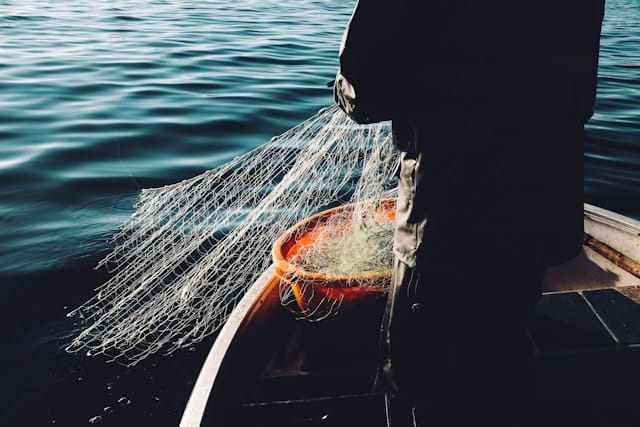As we stand at the forefront of the 21st century, confronted with the reality of a changing climate and the urgent need for sustainable practices in every sector, the necessity to protect our oceans becomes increasingly apparent. The ocean holds the key to our survival – a vast, breathing entity that provides food, regulates our climate, and is home to countless species of marine life. However, despite its significance, the depletion of marine resources through overfishing is triggering harmful effects on marine ecosystems and the livelihoods of communities who depend on them. As responsible citizens, you can contribute to the solution by understanding and advocating sustainable fishing practices, thereby ensuring the preservation of marine ecosystems and secure food for future generations.
The Impact of Overfishing on Marine Ecosystems
Overfishing refers to the practice of catching fish from the sea at rates too high for the species to replenish. This unsustainable practice is causing a significant decline in fish populations, disrupting marine ecosystems, and threatening the survival of various marine species.
En parallèle : What are the psychological benefits of spending time in natural green spaces?
The depletion of the fish stocks does not merely affect the species directly targeted, but also those that depend on them for food. As the balance of the marine ecosystem is disrupted, the effects ripple throughout the food chain, causing potentially irreversible damage. Overfishing also leads to a reduction of species that act as ‘natural cleaners’, keeping the oceans free from toxins and waste.
Sustainable Fishing: A Way Forward
Safeguarding our marine ecosystems requires a fundamental shift in our approach to fishing. Sustainable fishing involves practices that protect the marine environment, maintain healthy fish populations, and support the well-being of communities who rely on fishing for their livelihood and food security.
A lire en complément : How can AI-powered chatbots improve mental health support and therapy accessibility?
Sustainable fishing ensures that fishing is done at a level that allows fish populations to rebuild and thrive. It involves using fishing methods that minimize environmental damage and avoid catching non-target species. When we talk about sustainable fishing, we also refer to responsible aquaculture practices – the cultivation of seafood under controlled conditions – which, when done sustainably, can provide a significant proportion of the world’s seafood.
The Role of Fisheries Management
Effective fisheries management is a critical component of sustainable fishing. Fisheries management involves regulating when, where, and how fishing takes place to ensure that marine resources are used responsibly and sustainably.
Regulations may include fishing quotas, gear restrictions, and the establishment of marine protected areas. These measures are designed to protect fish stocks, prevent overfishing, and ensure the long-term sustainability of marine ecosystems.
Fisheries management is not just about the conservation of fish and marine ecosystems. It is also about the people and communities who depend on the sea for their livelihoods. Through effective management, fisheries can provide a sustainable source of income and food for these coastal communities.
The Role of Communities and Consumers in Promoting Sustainable Fishing
The protection of marine ecosystems and the promotion of sustainable fishing is not just the responsibility of governments and fishing industries. Communities and consumers have a critical role to play in supporting sustainable practices.
Communities can engage in co-management of local fisheries, participate in monitoring and enforcement, and promote sustainable fishing practices. As consumers, you can make choices that support sustainable fishing. By choosing seafood that has been certified as sustainable, you are sending a message to the industry about the kind of practices you wish to support.
Sustainable fishing is not just an environmental issue. It is a social and economic issue. By supporting sustainable fishing, you are helping to ensure the future of marine ecosystems, the livelihoods of millions of people, and the availability of seafood for generations to come.
Impact of Climate Change on Marine Ecosystems and Fishing Practices
Climate change is posing a significant challenge to marine ecosystems and fishing practices. Rising sea temperatures, acidification of oceans, frequent storms, and rising sea levels are some of the effects of climate change that are impacting marine life and fisheries.
As the ocean absorbs most of the heat and carbon dioxide from the atmosphere, it’s resulted in warmer ocean temperatures and acidified waters. Warmer waters are causing marine species to migrate to cooler areas, disrupting the balance of marine ecosystems and affecting fish populations. Acidified waters are detrimental to shellfish and coral reefs, which play a crucial role in maintaining marine biodiversity.
Extreme weather events, such as storms, have become frequent due to climate change. These events can damage fishing gear and marine habitats, affecting the productivity of fisheries. Rising sea levels also pose a threat to coastal communities that depend on fishing for their livelihood. They face the risk of flooding and loss of land, which can impact their homes and fishing grounds.
The United Nations and government organizations worldwide are taking measures to mitigate the impact of climate change on fisheries. These include promoting sustainable fishing practices, implementing effective fisheries management, and raising awareness about the importance of protecting marine ecosystems. However, these efforts will only succeed with the active participation of fishing communities and consumers.
Conclusion: The Path towards Sustainable Fisheries
Sustainable fishing is the key to preserving marine ecosystems, ensuring food security, and protecting livelihoods of fishing communities. Industry, government, communities, and consumers must all play their part to ensure a transition from current practices towards sustainable ones.
Fishing industries need to adopt fishing practices that are sustainable and cause minimal harm to marine life. They should also work towards reducing bycatch – the unintended catch of non-target species. Governments have a crucial role in setting and enforcing policies that support sustainable fisheries and provide socio-economic benefits to coastal communities.
Communities, particularly small-scale fisheries, need support in implementing sustainable fishing practices. They should be involved in co-management of resources and decision-making processes to ensure their interests are considered. Consumers can also contribute to promoting sustainable fishing by making informed choices and preferring sustainably sourced seafood.
The task is undoubtedly challenging, but with coordinated efforts and a commitment to sustainable practices, we can ensure that our oceans continue to thrive. At stake are not just the long-term health of our oceans, but also the well-being and food security of millions of people around the world who depend on them. As we move further into the 21st century, our actions today will determine the future of our oceans and those who rely on them.











